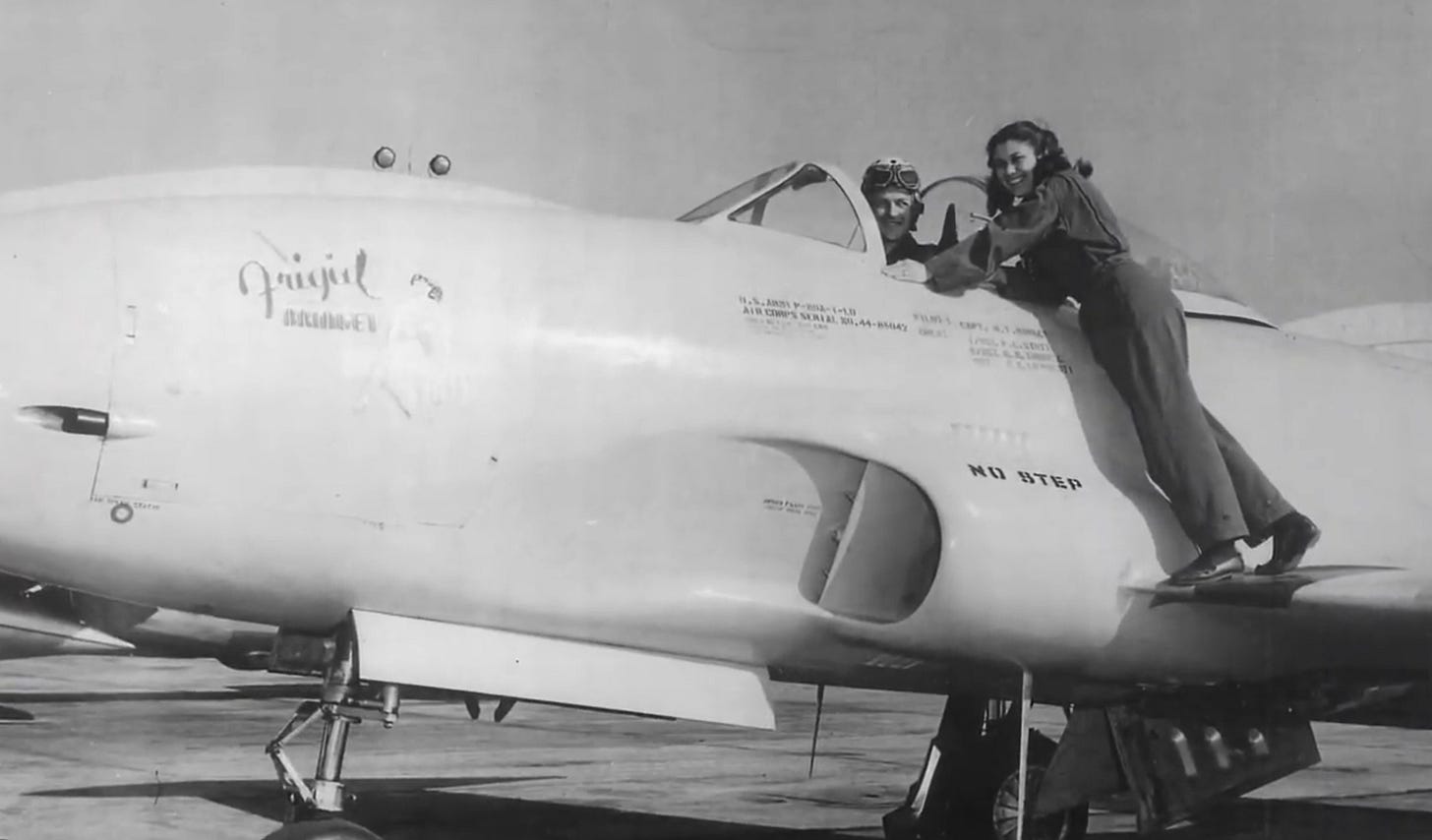TDIH: Mary Feik, aviation heroine
The staff there was all-male and no one wanted to give her a project at first. “Finally, one of the engineers saw me sitting on the bench one day,” she laughed, “and said, ‘Oh hell, I’ll take her.”
On this day in 2016, an aviation heroine passes away. Mary Feik was the first female aviation engineer to serve our country during World War II. She’s been called “truly a legend” and an “amazing person” who “broke the glass ceiling in so many ways.”
She overcame a few obstacles along the way.
The first time Feik saw an airplane was as a young girl in the 1930s. She’d been with her father when a barnstorming biplane flew over their heads. Her father followed the plane in his car. When the pilot landed, he handed the pilot $5 to take them for a ride.
Her mother fainted when she found out what had happened, but Feik was hooked. “I never got over it,” she later said.
In the meantime, Feik spent her formative years learning about engines because her dad was an auto mechanic. “My father had a repair shop,” she described, “and we were raised during the Depression, in a time when you had to help out to survive. As a preschooler, I remember having my own creeper to go under the cars and hand my dad the tools. I was the tool manager.”
Feik was a proficient welder by the time she was 11. She overhauled her first engine by the age of 13. In 1941, she tried to apply to Buffalo University’s School of Engineering, but she was turned down because of her gender. “He said, ‘I’m sorry, we don’t take women because [they] can’t handle the work,” Feik said of the attempt. “And then he left the room.”
Feik wasn’t going to be stopped that easily. “You can get what you want, if you have a backup plan,” she chuckled.
She soon saw an advertisement: The Army needed aircraft mechanics immediately because of the war. Feik didn’t have any specific experience with airplane engines, but she knew she’d figure it out. She learned quickly and was soon teaching aircraft maintenance to crew chiefs and mechanics in the U.S. Army Air Forces. She transferred to Wright Field in Dayton because she wanted a tougher challenge.
The staff there was all-male and no one wanted to give her a project at first. “Finally, one of the engineers saw me sitting on the bench one day,” she laughed, “and said, ‘Oh hell, I’ll take her.”
Feik’s career grew from there. She learned to fly a plane and became a test pilot. She earned the designation “engineer” instead of “mechanic” because she’d turned herself into an expert. She began a project to convert planes into flight simulators. She authored pilot training manuals.
She was later asked what it was like to be the only female engineer among so many men. “I tried not making a big deal out of it,” she said, “doing it quietly and nonchalantly. I did it by the book, too, so the only difference would be that I am a woman; they wouldn’t have anything else to pin on me.”
Feik retired from the Air Force in 1976, but she still had more to contribute to the field of aviation. She joined the United States Air Force Auxiliary, Civil Air Patrol where she earned the rank of Colonel. She began mentoring cadets. She collaborated with the Smithsonian and helped to restore World War I and other aircraft.
Feik has been presented with multiple awards and has even been inducted into the Paul E. Garber First Flight Shrine at Wright Brothers National Memorial, but she most valued an achievement ribbon named in her honor at the Civil Air Patrol. She personally awarded the Mary Feik Achievement ribbon to many cadets during her lifetime and even created her own certificate to go along with it.
On each certificate is the advice that her dad offered to her: “Aim high and follow your dreams.”
“That works for all the young people in the world,” she concluded, “cause it worked for me.”
Sources can always be found on my website, here.





What a GREAT story!
“Aim high and follow your dreams!”
This quote should be taught in every home and school across our nation!
Thank you Tara!!
Overcoming long practiced attitudes and biases towards people will only become the norm when we begin to live from a frame work of human flourishing. Recognizing the value of each individual and their giftedness. Then our country will reap the rewards of their contributions with far less individual struggle. Thankful for her perseverance else many would have missed out on her expertise.